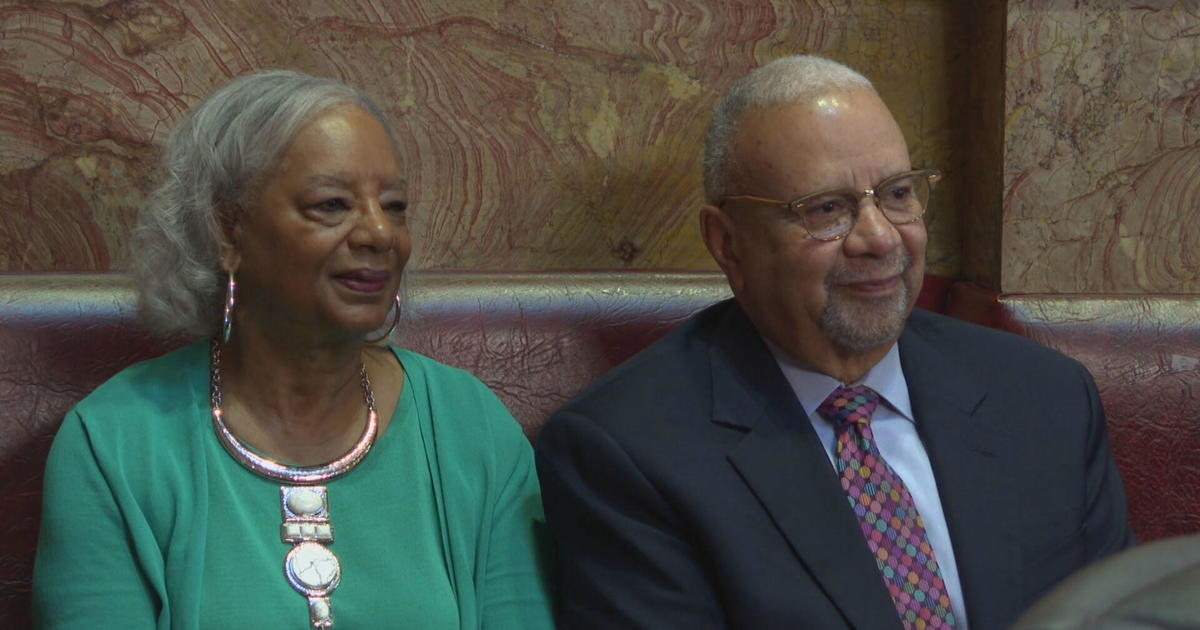Federal Crackdown Hits Colorado Dispensaries Near Schools
DENVER (AP)- Federal officials on Thursday began a California-style crackdown on medical marijuana businesses in Colorado that targets those located near schools.
U.S. Attorney John Walsh said 23 dispensaries within 1,000 feet of schools have until Feb. 27 to shut down or face federal penalties, which can include asset seizure or forfeiture of property. The warning letters dated Thursday were being sent to dispensary owners and their landlords.
He said the letters were a first step and prosecutors were looking for medical marijuana businesses to target near schools. Walsh's office declined to release a list of targeted businesses, saying they do not make public individuals under investigation.
State regulations prohibit medical marijuana businesses within 1,000 feet of schools but grandfathered in those businesses already in existence before regulations were passed last year.
Sixteen states have passed laws allowing medical marijuana, beginning with California in 1996. Unlike California, Washington, and Montana, where federal officials have cracked down on businesses sanctioned by the state, Colorado's industry is heavily state-regulated. A ballot measure is pending to make it legal for recreational use, and state officials have asked the federal government to recognize the herb as medicine.
"When the voters of Colorado passed the limited medical marijuana amendment in 2000, they could not have anticipated that their vote would be used to justify large marijuana stores located within blocks of our schools," Walsh said.
Colorado's medical marijuana industry began its boom after a September 2009 memo by then-Deputy Attorney General David Ogden that said federal prosecutors should not focus investigative resources on patients and caregivers complying with state laws. But faced with dispensaries and states passing laws regulating medical marijuana, Ogden's replacement, James Cole, in June issued another memo that took a tougher stance and said state medical marijuana laws do not provide immunity from federal prosecution.
He said commercial enterprises that sell or profit from marijuana sales should be a priority. He reinforced that cancer patients and caregivers shouldn't be targeted.
Colorado's attorney general, John Suthers, who opposed regulations under the argument that they legitimize an illegal enterprise under federal law, said he long warned lawmakers of the clash between state and federal law.
"I would expect the federal government having jurisdiction, to do what they think is necessary to limit drug problems in the state of Colorado," Suthers said in a recent interview with The Associated Press. "I'm not going to oppose it."
Colorado has more than 600 retail shops, 900 cultivations and 230 infused product manufacturers operating under state law, according to the state revenue department. A spokeswoman for the department's Medical Marijuana Enforcement Division did not immediately return a call Thursday.
Samantha Beckmann manages a dispensary across from a high school, with the school's baseball fields on the other side of a crosswalk of a busy street. She said the U.S. attorney's action is discriminatory because it singles out certain dispensaries.
"We will move. We will make it happen," she said. "If they're going to do anything, they should shut everyone down. They shouldn't discriminate."
Outside the Colorado state Capitol, about three dozen marijuana activists rallied as Democratic Gov. John Hickenlooper gave his annual State of the State address. The governor did not mention pot, though he signed a marijuana regulation law last year and his administration recently joined other states in asking the Drug Enforcement Administration to reclassify marijuana so that it could be considered a medical treatment.
A community organizer at the marijuana rally said he wasn't surprised by the crackdown. He blamed state authorities and the state's larger marijuana businesses for setting up elaborate rules for how medical marijuana can be bought and sold.
"They set up all these rules and now they're coming back to pinch them in the butt," said Miguel Lopez of The Denver 4/20 rally, which attracted 20,000 people last year. Lopez favors full legalization for the drug, not Colorado's system of dispensaries regulated by the state Department of Revenue.
By P. SOLOMON BANDA, Associated Press
(© Copyright 2012 The Associated Press. All Rights Reserved. This material may not be published, broadcast, rewritten or redistributed.)



